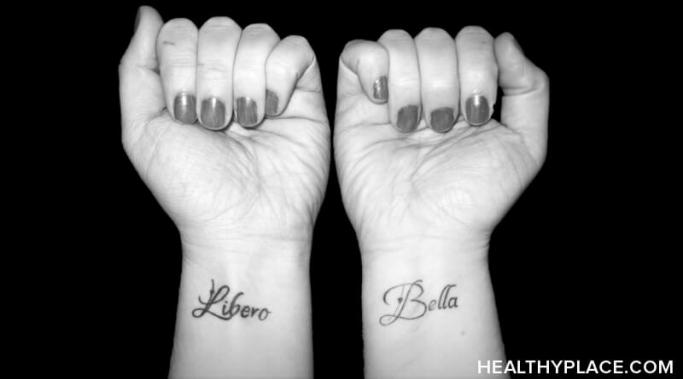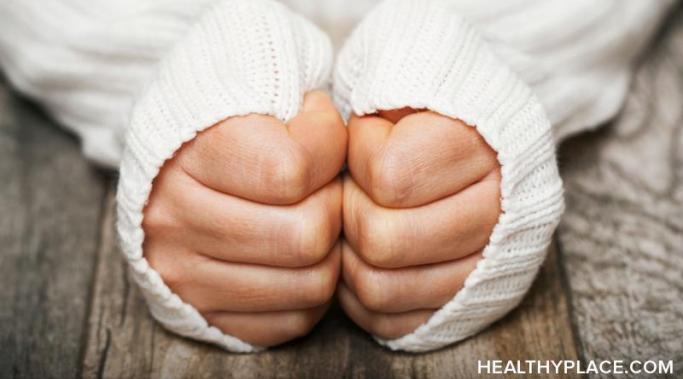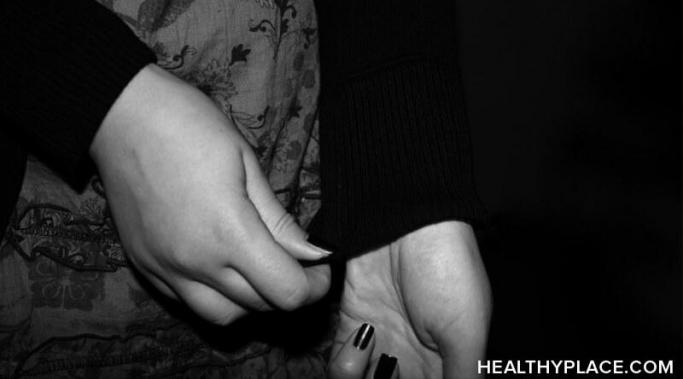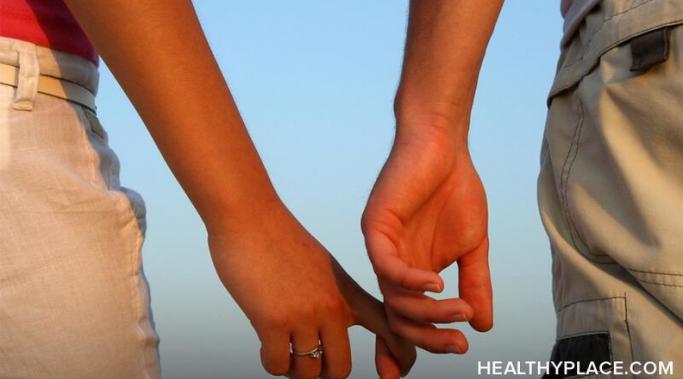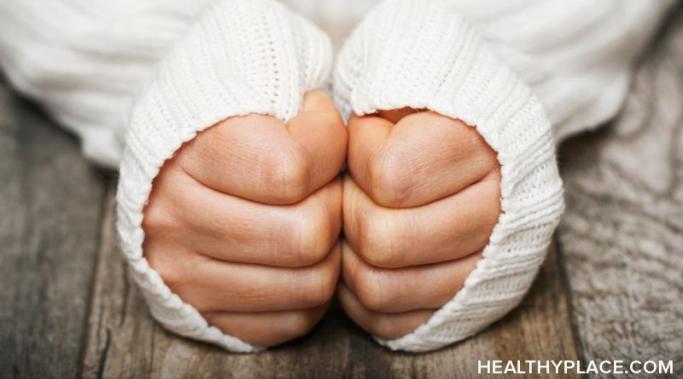You would think that the reasons to recover from self-harm would be obvious. In a way, they are. You would also think that those who currently suffer from self-harm tendencies would recognize these reasons and use them to motivate their recovery. In a way, they do. But that is the thing about mental illness: no one chooses to be sick. Rationale tells us that the drawbacks of self-harm far outweigh the benefits but our sick brains tell us otherwise. The trick is to access and strengthen our rationale — that is, the healthy part of our brains that still exists somewhere inside of us — to do what we know we need to do (Mental Illness Isn't a Choice, But You Still Have Choices). Finding reasons to recover from self-harm is part of the process.
Speaking Out About Self Injury
Recovering from self-harm is hard for reasons too numerous to list. The process of self-harm recovery is often lonely, confusing, messy, and dark. Feelings of hopelessness, feeling trapped, and feeling flooded with whatever emotions led us to self-harm in the first place are not uncommon, nor are the urges that cloud our thoughts and tempt us toward relapse in our self-harm recovery.
You see this stigma of self-harm for attention played out in TV shows, movies, and often even in real life: A person engages in self-harm. This behavior is noticed by another person, either because the self-harmer has confessed or wears visible scars. People debate among themselves about whether this self-harming behavior warrants confronting the person and/or seeking professional help for the person. Then, as if on cue, someone suggests they forget about the whole thing, and says something along the lines of, "She's just self-harming for the attention."
Questions about self-harm scars and dating, sex and intimacy cause many people with visible self-harm scars to worry: "Are self-harm scars a turn-off?" "Should I try to hide my scars from my partner?" "When is it appropriate to explain my scars to a partner, and how can I best approach this type of conversation?" What are the right answers to these questions about self-harm scars and dating?
My name is Kayla Chang, and I’m thrilled and honored to be a part of the Speaking Out About Self-Injury blog at HealthyPlace. I hope that by sharing my thoughts and experiences in a way that is informative, vulnerable and — most importantly — honest with you, we can build an ongoing network of support and have meaningful, productive conversations around the issue of self-injury (also known as self-harm) together.
I have been in self-harm recovery for about 10 years now, often dealing with what triggers my self-harm urges. During that time, it has always been difficult for me to identify what exactly is triggering my self-harm urges. It wasn't until I went to my last therapist that I got the tools to figure out my underlying patterns of self-injuring. In this post, I want to go over the three main reasons behind why I started self-harming. Maybe your triggers for self-harm urges are similar.
I have been in self-harm recovery for the past 10 years, but I didn't always know how to recognize self-harm triggers. When I was a teenager, I went to therapy to help me get over my self-harm addiction. One day, my therapist asked me “Why do you think you self-harm?” Until that moment I never really thought about the reasons behind why I self-harm. I always just thought it was the way I coped with different situations in my life. We started to brainstorm some situations, people, and events that trigger my self-harm urges. It’s beneficial to recognize self-harm triggers so you can find healthier coping skills to handle your stress.
There are ways to explain self-harm scars to children, but I haven't always known what to say. When I was in my first year of college I had a job working with children at a daycare. Children are curious by nature and they ask a lot of questions about their surroundings. If something is “out of the norm” they are going to ask questions about it. One night, I wore a dress which showed a few of my scars. I had a small child come up and ask me, “Teacher, what happened to your leg?”
When I was first in self-harm recovery, school was one of my major triggers. Back to school anxiety always make me fear I was going to relapse. With all of the due dates, friend drama, and the pressure to do well in my classes, school was a very stressful time for me. I had a very hard time managing my self-harm urges when I was in high school, but when I started self-harm recovery in college I started to find some healthier coping skills to handle the stresses of life. In this blog post, I am going to be sharing with you three things that helped me manage my self-harm urges while in school.
My name is Kristen Schou and I am delighted to join the Speaking Out About Self-Injury blog on HealthyPlace. I am so excited to have a platform to share my experiences with self-injury and give advice to help others. Self-injury is a condition that is very stigmatized which causes people not to reach out for the help that they need. My goal for this blog is to help others who are going through the same thing that I went through.
